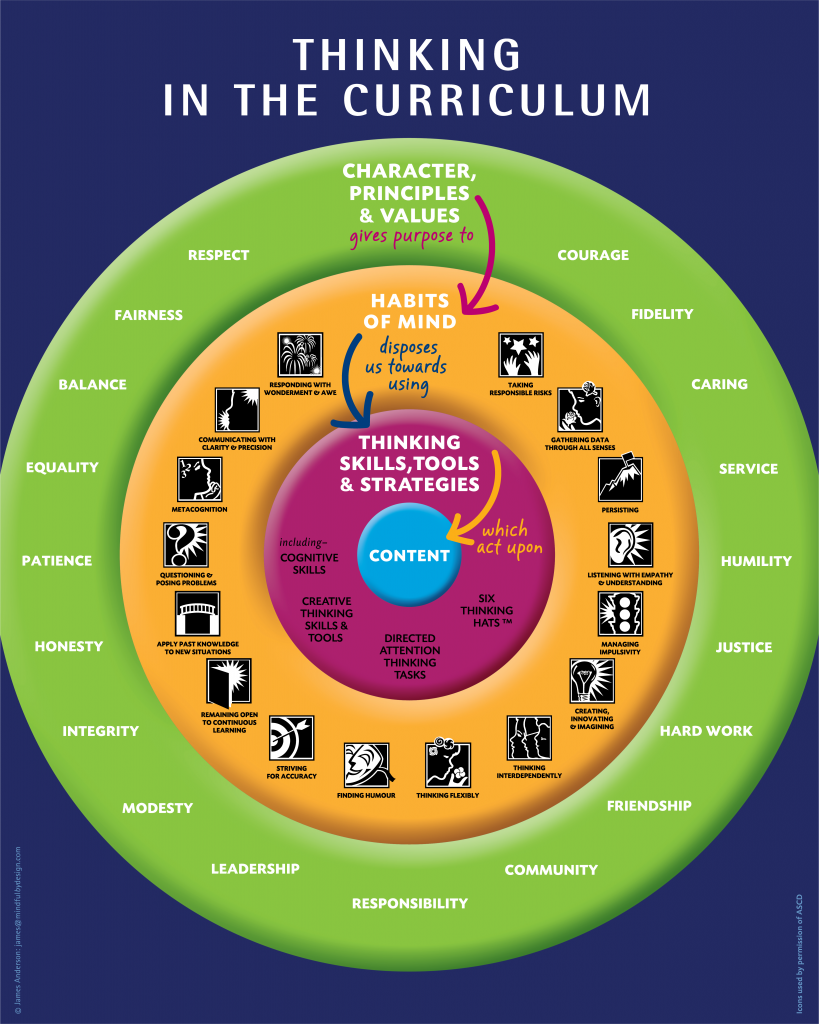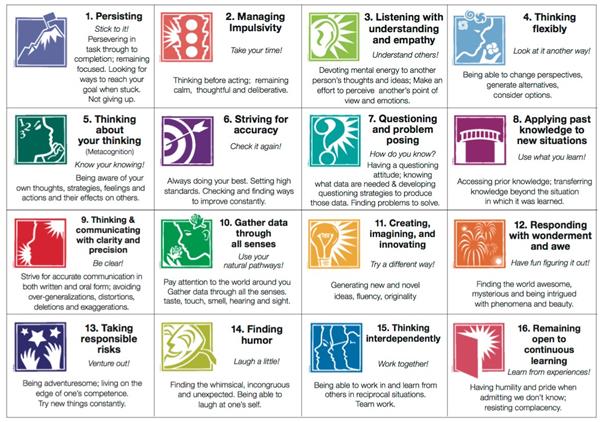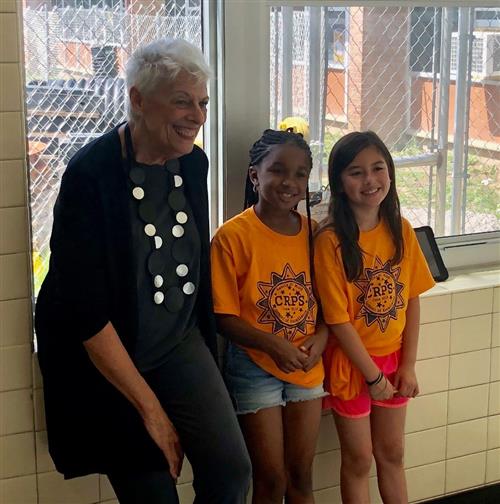Information Processing
Information Processing

Hammond (2015) describes information processing as "the student's ability to take inert facts and concepts and turn them into useable knowledge." In Brighton, we promote a student's ability to process information through the effective or adaptive mental operations (Habits of Mind (HoM)), Making Thinking Visible (MTV) routines, and cognitive scaffolds one goes through to accomplish the academic tasks at hand. Our goal is to teach students mastery of essential operations so they can master more complex ones. Learning these operations builds the brainpower to develop intellective capacity, which requires intentional and well-thought connections to students' funds of knowledge and cultural assets to ignite curiosity and engagement. Specifc research bases we use to promote information processing include:
- Cultures of Thinking is a way to approach instruction in which educators pay attention to 8 cultural forces (time, routines, opportunities, language, environment, interactions, modeling, expectations). When working in tandem, these forces nurture the development of intellective capacity, the student's brainpower to process information, which is the heart of culturally responsive instruction.
- Project-Based Learning (PBL) is a modality of teaching that places inquiry at the center of the learning process connecting students' interests to every project's development. At Brighton, we follow the ideas of the BUCK institute for education, the PBL"mothership" in the US and the world. PBL is student-centered. It inspires students to see themselves as learners, collaborators, and leaders. It prepares them for academic success, building student independence through intellective capacity, the students' ability to process complex academic and authentic tasks within an interdisciplinary approach to the curriculum.
- Habits of Mind as identified by Art Costa and Bena Kallick, are the thinking dispositions people employ to solve problems that do not have immediate solutions. In other words, these thinking habits help humans know how to act when faced with a challenge.

HOM Research shows that a disproportionate number of culturally and linguistically diverse students are dependent learners, meaning they have not been taught information processing skills that are needed to successfully navigate rigorous academic work. They don’t know how to act when the work is challenging.
Habits of Mind support everyone in our learning community to develop effective information processing by…
• Enabling students to learn and develop the thinking dispositions they need to access knowledge, skills, and strategies as they face challenges and solve problems.
• Providing a framework for educators to identify and explicitly teach skills, strategies, and protocols.
• Helping all community members to use a common language to discuss learning moves that lead to success.

Bena Kallick with students at a celebration of Council Rock Primary School’s designation as an International Habits of Mind Learning Community of Excellence, June 2019
